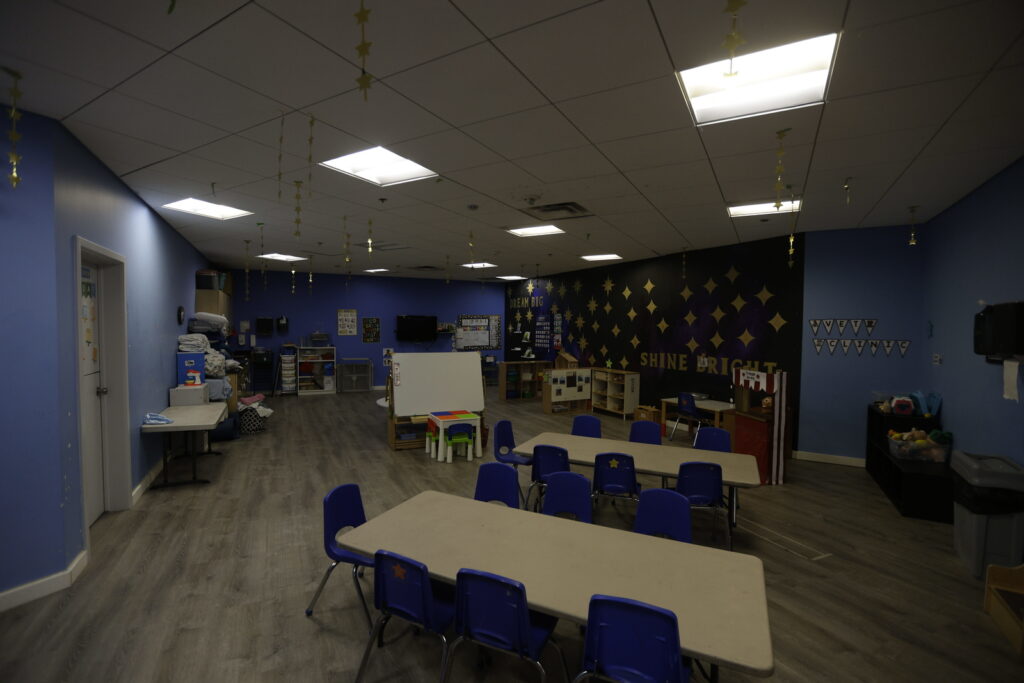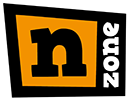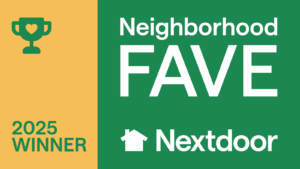nZone Blog
When Should My Kid Start Preschool, Pre-K, and Kindergarten?

Written by Patricia Booth Coote, Director of Education at The nZone
When my eldest turned 3, I wanted to enroll her in a preschool program. However, the only preschool program in my small town required potty training, and she wasn’t ready for that step yet. Academically and socially, she was ready for a learning environment with her peers, so I enrolled her in a program that friends attended about 30 minutes from my house. This program allowed me to spend time with my one-year-old daughter and tackle errands.
On the first day of school, I packed her bags, got her lunch ready, and walked out to the front porch. “Where’s the school bus?” my three-year-old asked. After spending years watching school buses pass our house to deliver elementary students to our local school, the idea of attending school excited her. Her favorite show was Magic School Bus, and she saw them pass by our house daily. Quickly thinking, I explained that our van turned into a magic school bus to take her to preschool. A smile sprinkled across her face, and she gleefully climbed into the minivan.
When we arrived at the school, I expected she would experience separation anxiety and prepared myself for the tears. But at the drop-off, she simply waved to me, “Bye, Mommy!” She had three more siblings that followed her, and the decision for when and where to enroll each one in preschool depended on our family’s unique needs at the time, as well as the child’s development.
Deciding when your child should start preschool is an exciting and emotional time for families. Research shows that enrolling at the right time can boost social, emotional, and cognitive growth, setting the stage for lifelong learning.
When to Start Preschool
The most common time to start preschool is in the fall, at the start of the regular school year, after a child turns 3.
However, age is not the only factor determining when to enroll in a preschool program. Every child develops at their own pace, and to ensure they know when their child is ready, parents should observe their child’s developmental milestones and individual needs. A child’s willingness for structured routines and behaviors within group activities should reveal their readiness.
Factors to Consider
To determine if your child is ready for preschool, consider these milestones:
- Have they achieved some independence, such as putting on shoes or putting away a toy? Can your child use the potty on their own?
- Do they enjoy interacting with other children, even in small ways, such as smiling or asking to share a toy?
- Do they engage with curiosity in their environment?
- Can they separate from their parents for a few hours with manageable anxiety?
The answers to these questions can also help determine the type of program a child needs to learn and grow. As in my eldest daughter’s case, she was socially ready; however, she needed about six more months to become fully potty-trained.
Parental work schedules, financial considerations, or sibling dynamics factor into the decision. Many high-quality programs adapt to children’s unique rhythms.
When to Start Pre-K
Many programs interchangeably use the terms preschool and pre-k; however, there is a difference between the two programs. The major difference between preschool and pre-K (pre-kindergarten) lies in their focus and the age group they serve.
Preschool programs typically cater to children aged 2.5 to 4 years old. These programs focus on socialization, developing gross and fine motor skills, and introducing activities in a more play-based setting.
Pre-K is designed for 4 to 5 year olds, who are one or two years away from Kindergarten. These programs focus on preparing children for a formal school setting with early literacy, numeracy, and gaining more independence through problem-solving skills.
Of course, these distinctions may vary based on the program model. Both programs are designed to help children with social and emotional growth. The biggest thing to understand is that progression from preschool to Pre-K supports a child’s preparedness for learning in the more structured Kindergarten.
When to Start Kindergarten
Kindergarten is an exciting step toward independence and learning. It is a big milestone, and often, when to start is determined by individual state’s rules and guidelines. Some states have a compulsory starting age of 5, set by a predetermined date, while others have guidelines with a compulsory age of eight for formal education. The rules surrounding homeschooling your child or delaying a year also vary from state to state.
A parent needs to contact the school district where they reside to understand the enrollment process and when they legally must enroll their child.
Similarly to preschool and pre-k programs, parents should observe their children and watch for readiness in social, emotional, academic, and independent skills. Students ready for kindergarten share, follow directions, and cooperate with peers. They can use the bathroom independently, wash their hands, open a lunchbox, put on a coat, and use utensils to eat. They can recognize letters, numbers, shapes, and colors, and many can write their name.
How to Find the Right School for Your Kid
There are many different philosophies and options for school programs. Trying to discern between preschool models like play-based, Waldorf, Reggio, Montessori, and many others can take time to navigate. You will want to choose a school that matches your values, flexibility and accessibility needs, and offers a strong teacher-parent partnership.
Take a few months to research schools in your area by checking reviews, asking other parents for feedback, scheduling a tour, and making a list of which learning philosophies you are interested in. Once you establish a list of schools you are interested in, schedule a tour and ask questions about parent-student ratios, waitlists, and how soon your child can start.
Our play-based preschool is designed to meet the unique needs of children aged 2-5. With an emphasis on exploration, creativity, and care, we provide a safe, nurturing environment where your child can flourish. Highlights of our program include:
- Accommodation for potty training, recognizing every child develops differently.
- Balanced schedules of free play and age-appropriate learning activities.
- The teacher-to-child ratio ensures the environment feels welcoming and engaging.
- A partnership with parents, ensuring you’re part of your child’s journey.

